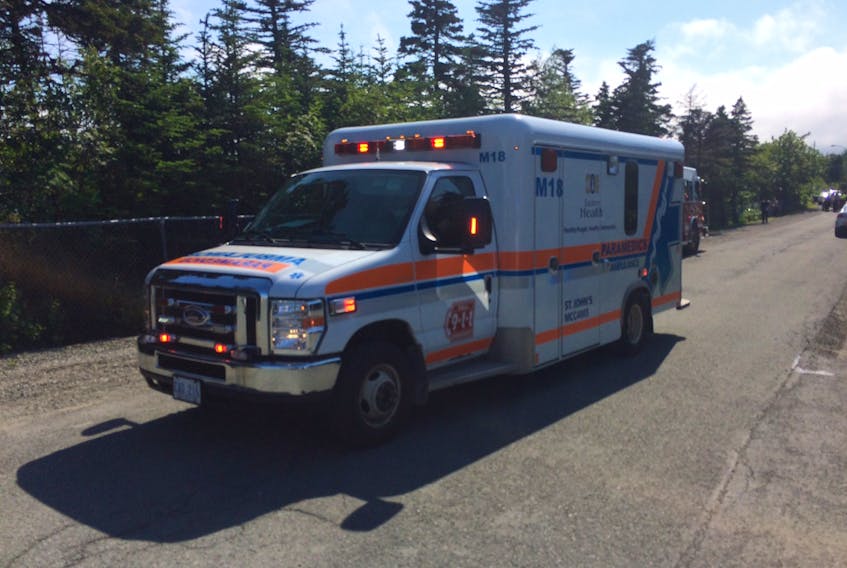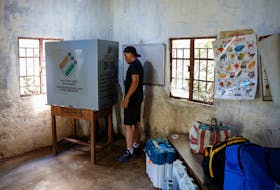Eastern Health announced paramedics in Newfoundland and Labrador are now able to administer hydrocortisone, for the emergency treatment of patients who are experiencing adrenal crisis.
Rapid recognition of adrenal crisis and immediate administration of hydrocortisone prior to patient transport can have life-saving implications, Eastern Health said in a news release.
The new protocol will be used by all paramedics, both primary care and advanced care within all regional health authorities, who have recently completed the required training offered by the office of Provincial Medical Oversight (PMO). The office of the PMO, located at St. Clare’s Mercy Hospital, is the regulatory body for paramedicine in Newfoundland and Labrador, and sets the scope of practice for all providers working on ambulances in the province.
This new protocol means that Newfoundland and Labrador becomes the first province in Canada to adopt a comprehensive approach to adrenal crisis by paramedics., Eastern Health said.
The medication to manage adrenal crisis will be stocked on ambulances.
“This is a very positive advancement for patients with adrenal insufficiency, as well as for the profession of paramedicine in this province,” Eastern Health president and CEO David Diamond said in the release. “Timely access to care is a priority, and I commend the office of the Provincial Medical Oversight for taking the national lead on this clinical protocol, which could literally save the lives of people in the province.”
The adrenal glands are responsible for releasing hormones to enable the body to appropriately manage a physiological response to stress. Without adequate supply of these hormones, patients with adrenal insufficiency can go into adrenal crisis when ill, or experiencing trauma. Adrenal crisis can be a critical, and sometimes fatal event, if not rapidly managed, Eastern Health said.
Examples of medical conditions that may cause adrenal insufficiency, whose patients may benefit from this new protocol include, but are not limited to, the following:
• Addison’s disease,
• chronic adrenal hyperplasia,
• cancer,
• bilateral adrenalectomy,
• pituitary conditions,
• autoimmune disorders,
• tuberculosis,
• patients on chronic glucocorticoid steroids
Adrenal crisis, while uncommon, is not rare – and we want to ensure that we can either prevent it or treat it when it happens so people get the right care at the right time,” said Dr. Brian Metcalfe, provincial medical director with Provincial Medical Oversight. “It’s estimated that thousands of Newfoundlanders and Labradorians have medical conditions that put them at risk of an adrenal crisis and paramedics are ideally positioned to act swiftly to prevent and treat this serious complication.”
The Canadian Addison Society, which has advocated throughout Canada for greater recognition and rapid management of adrenal crisis, provided the supply of hydrocortisone training vials for the education of paramedics in the province.
“This is truly a milestone for Canadian paramedicine and for patients with adrenal insufficiency,” said Harold Smith, president of the Canadian Addison Society. “Our society is pleased to have been instrumental in raising awareness of the prevalence and risks of adrenal insufficiency. We extend sincere thanks to the Provincial Medical Oversight clinical team, for their tireless efforts in protocol development and paramedic education.”
There are 553 registered primary care paramedics and 67 registered advanced care paramedics in Newfoundland and Labrador. There are 179 active ambulances across the province.









